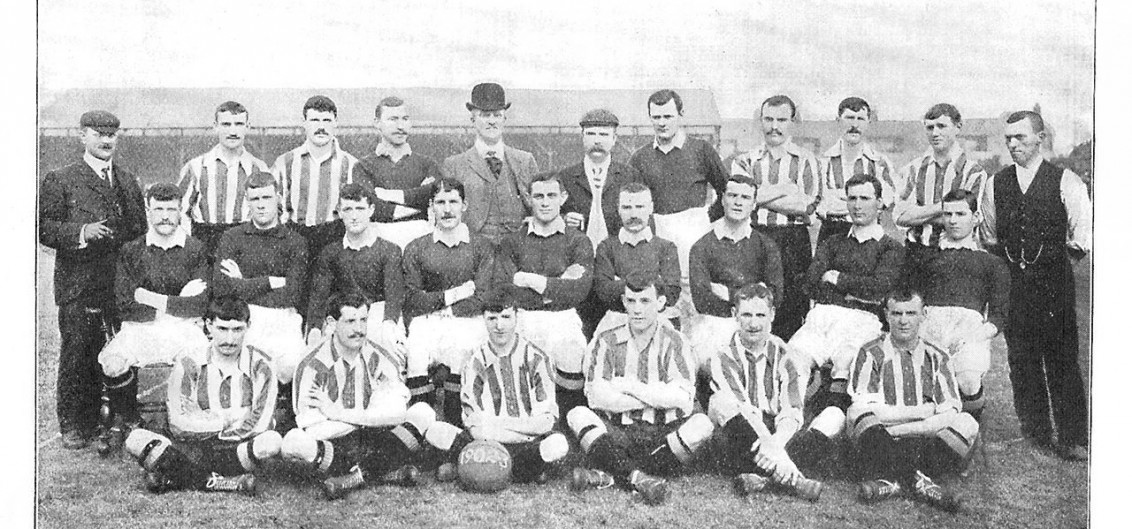Barely a week is passing during this summer transfer window without news of some daring transfer proposal from a Saudi Arabian football club. It appears that ever since Cristiano Ronaldo has signed for Al-Nassr FC, his colleagues have followed suit. The latest arrivals are Karim Benzema, Sadio Mané, N’Golo Kanté, Jordan Henderson and Steven Gerrard. The latter has been named the new coach of Al-Ettifaq, where Henderson will join him.
Henderson under fire
The transfer of Henderson has sparked some debates, as his promotional video after signing for Al-Ettifaq has shown him wearing a rainbow armband as captain – yet these sections have been “uncoloured” to let the armband appear black and white. The player’s reputation has come under fire since he was an outspoken supporter of LGBTQ+ rights, something which is not well thought of in Saudi-Arabia, i.e. it is illegal.
The official announcement video of Jordan Henderson.pic.twitter.com/vGpVg9KziY
— DaveOCKOP (@DaveOCKOP) July 27, 2023
Money Talks
Let’s face it: this is a money move to harvest as much as possible after a long career with many deprivations for the player and the sacrifices for his parents. From a footballing perspective, Saudi-Arabia must be considered as a backwater. The league provides no major challenges for players who have played many years at Real Madrid and who have lifted the Champions League trophy a few times, like Karim Benzema and Cristiano Ronaldo have done. It is a possibility for Western stars to shine bright again one last time. The question is: what do these players want in Saudi-Arabia other than cashing in? Any other reply is brainwashing.
Europe has done this to Africa and South America
It is indeed a fact that European clubs have bought players from overseas to strengthen their squads with players who do require next to nothing in transfer fess. The aim was to find a gem and sell it on. For decades, European clubs have looked to Africa and South America to scout talent from a very early age. Europe’s track record in this respect is murky, at best. Too often, young, talented players were lured away from home with the promise of wealth and stardom at their new destination. Only a few succeeded: Think Lionel Messi, Cristiano Ronaldo or Didier Drogba. For each of these there are hundreds, if not thousands, of young aspiring players who fall by the wayside. Either by broken promises, exploitation or by injury, sickness or other reasons.[1]
In that respect, Saudi Arabia and its football clubs doing exemplary business by signing the finished players without any risks – except injury or illness – or any demands for compensation from parents, feeder clubs etc. It has to be added, however, that Lionel Messi hat not signed for any Saudi Arabian club but instead has moved to Inter Miami, in the MLS. He is nonetheless on the payroll of the PIF as he is an official ambassador for Saudi Arabia as a tourist destination.
No money is clean, is it?
The Roman emperor Vespasian is said to have said to his son
“Pecunia non olet – money does not stink”[2]
after the latter wondered if the revenue generated from piss would smell.
And while there is no odour emanating from the money offered by Saudi Arabian clubs to players, it is nonetheless stained. Saudi Arabia’s wealth is largely based on its richness in natural resources, most notably, crude oil. This wealth has enabled Saudi Arabia to become a power broker on the global stage in many ways. This is part of the “Vision 2030”, a programme with the aim of diversifying the economy:
Saudi Arabia is using its investment power to create a more diverse and sustainable economy[3]
And the use of sport to gain recognition on the world stage – it has to beadded. The reason is clear: Saudi Arabia wants to get rid off of its image as a pariah state. Once more, Saudi Arabia is engaging in something that is well known in Europe – it was Germany in 1936 that (ab-)used the Olympics to distract from its war efforts and convey an image of a peaceful and open-minded nation. The truth was much darker and sinister. Thus, to accuse Saudi Arabia or any other country outside the “established” football world of the Americas and Europe, of sport washing hints at a blind spot in our own perception of football in these regions.
“What do they know of sports washing who only of sports washing know?”[4]
However, the problem is not the money itself, but its origins. Most of the time, European clubs have used their own money, mostly borrowed, of course, from businessmen and banks to sign players. The origins of these funds were also not always clear. Saudi-Arabian clubs do so with the backing of the Public Investment Fund, which is a state-owned fund, that allows clubs to sign players for astronomical amounts. Moreover, they do so with confidence and brazenness which is indeed astonishing. This is a class of its own.
What we are seeing here is a distortion of the transfer market There was even an attempt to sign Kylian Mbappé but the player never even entered the negotiations, dismissing them thus as not worth considering. For the Saudi Arabian clubs bidding for players like that is a mere play of poker as Jonathan Liew has noted.
Buying respect and reputation is one thing. Doing so in the manner of Saudi Arabia without considering the costs and the damage to the game must be seen with a critical eye and with the history of European clubs in mind. In a few years, we will see if this transfer sweep has led to the development of the game in the country or if this is just hot air as it was with China a few years earlier. For now, we have to live with it.
The game will survive but is it still ours?
Notes and Further Reading
[1] When Saturday Comes, Player Trafficking.
[2] Wikipedia, pecunia non olet.
[3] Vision 2030.
[4] Saudis don’t need the money.
The Indian Express, Saudi Arabia’s PIF buys 75% stake in 4 clubs, June 6, 2023.
Saudi Arabia’s $6bn spend on ‘sportswashing’.
Good writing does not come by chance, so consider a little tip:

